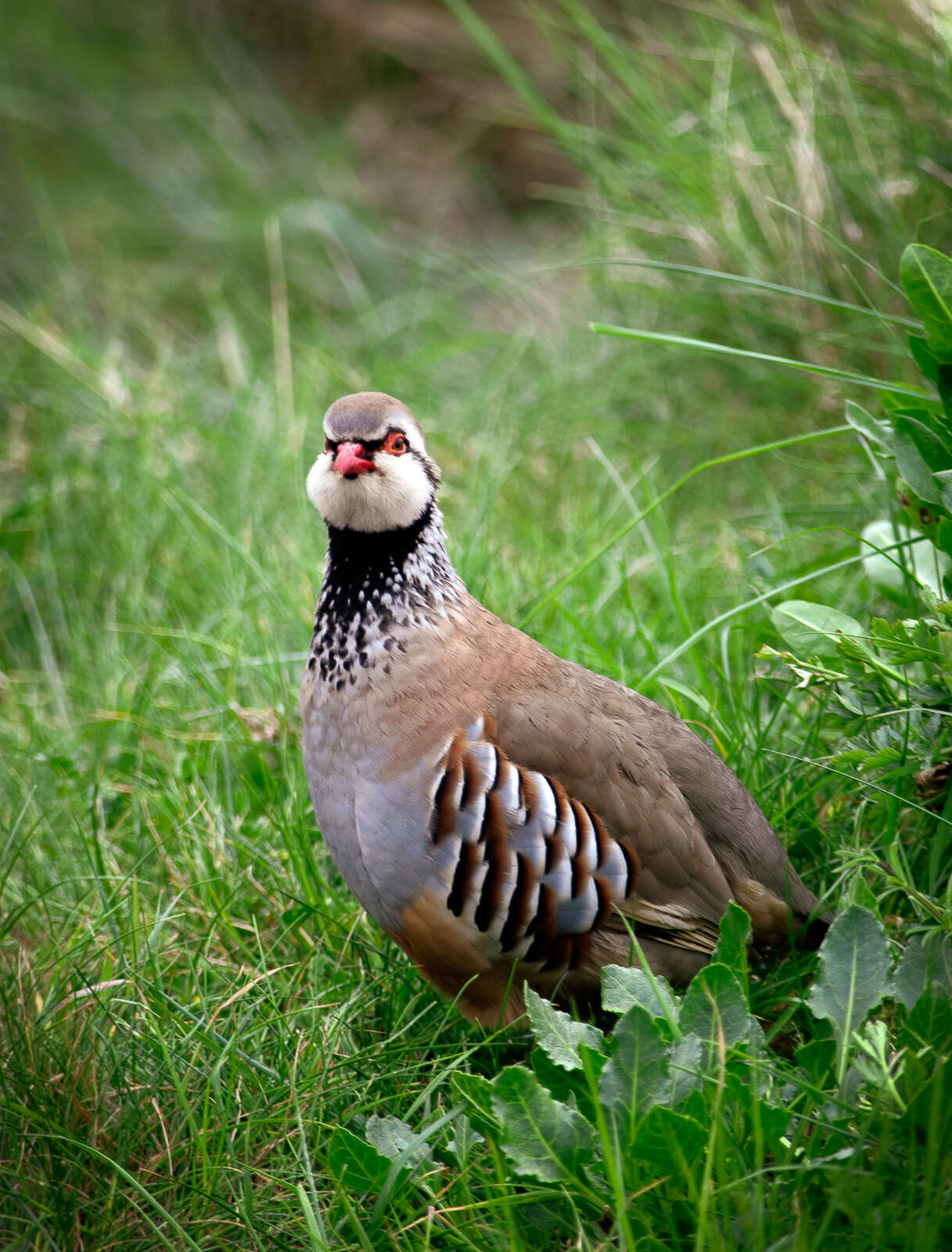Red legged partridge at Lepe, habitat and some history
Much of the New Forest's perimeter is fringed by farmland, the transition forming an irregular border, a complex series of verdant farmland fingers with crisp and angular field geometry pushing into the softer, natural, ancient order of the forest.
Farmland ecology, with its own flora and fauna, contrasts the forest’s with many distinct inhabitants that will be more familiar than the forest’s iconic animals to anyone from the rest of the country. One such creature is the charming, almost comedic, red-legged partridge, its habits and lifestyle tied to the wide open spaces of the fields rather than the neighbouring secluded woods. Introduced from the continent in the 18th century for game, but now a naturalised and familiar inhabitant of the countryside, this avian imposter bears a visual and behavioural resemblance to pheasant and quail, both of which may also be spotted in abundance in this area. Photogenic and handsome, they flaunt a distinctive chestnut and clay plumage, bright white cheeks, a dapper black cravat, their nominative bright red legs and theatrical electric-red eye-liner… very much the Ziggy Stardusts of the bird world.
Social birds, they scuttle about in groups, head jabbing away as they peck at insects and seeds on the ground. Vigilant and wary, they tend to favour running over flight and will scarper for cover at the drop of a hat, although they will take flight when they sense real imminent danger.
Their presence here at the boundary of forest and farm, but not deep in the forest or on the wide-open heaths, is a reminder that each animal has its own niche in these diverse ecosystems, of the delicate balance between wild and cultivated, and the uniqueness of each habitat. And, talking of delicate balance, it's not immediately apparent in this photo that the bird is standing just a couple of yards from a huge tumbling pile of concrete, a relic of the massive WWII military build-up in this area in preparation for the D-Day landings, but that, as they say, is a story for another time...
Photo details - Nikon D80, Nikkor 100-300mm at 200mm, f5.6 1/100sec ISO100, processed in Lightroom MacOS (Basic light settings and touch of vignette)
Farmland ecology, with its own flora and fauna, contrasts the forest’s with many distinct inhabitants that will be more familiar than the forest’s iconic animals to anyone from the rest of the country. One such creature is the charming, almost comedic, red-legged partridge, its habits and lifestyle tied to the wide open spaces of the fields rather than the neighbouring secluded woods. Introduced from the continent in the 18th century for game, but now a naturalised and familiar inhabitant of the countryside, this avian imposter bears a visual and behavioural resemblance to pheasant and quail, both of which may also be spotted in abundance in this area. Photogenic and handsome, they flaunt a distinctive chestnut and clay plumage, bright white cheeks, a dapper black cravat, their nominative bright red legs and theatrical electric-red eye-liner… very much the Ziggy Stardusts of the bird world.
Social birds, they scuttle about in groups, head jabbing away as they peck at insects and seeds on the ground. Vigilant and wary, they tend to favour running over flight and will scarper for cover at the drop of a hat, although they will take flight when they sense real imminent danger.
Their presence here at the boundary of forest and farm, but not deep in the forest or on the wide-open heaths, is a reminder that each animal has its own niche in these diverse ecosystems, of the delicate balance between wild and cultivated, and the uniqueness of each habitat. And, talking of delicate balance, it's not immediately apparent in this photo that the bird is standing just a couple of yards from a huge tumbling pile of concrete, a relic of the massive WWII military build-up in this area in preparation for the D-Day landings, but that, as they say, is a story for another time...
Photo details - Nikon D80, Nikkor 100-300mm at 200mm, f5.6 1/100sec ISO100, processed in Lightroom MacOS (Basic light settings and touch of vignette)
